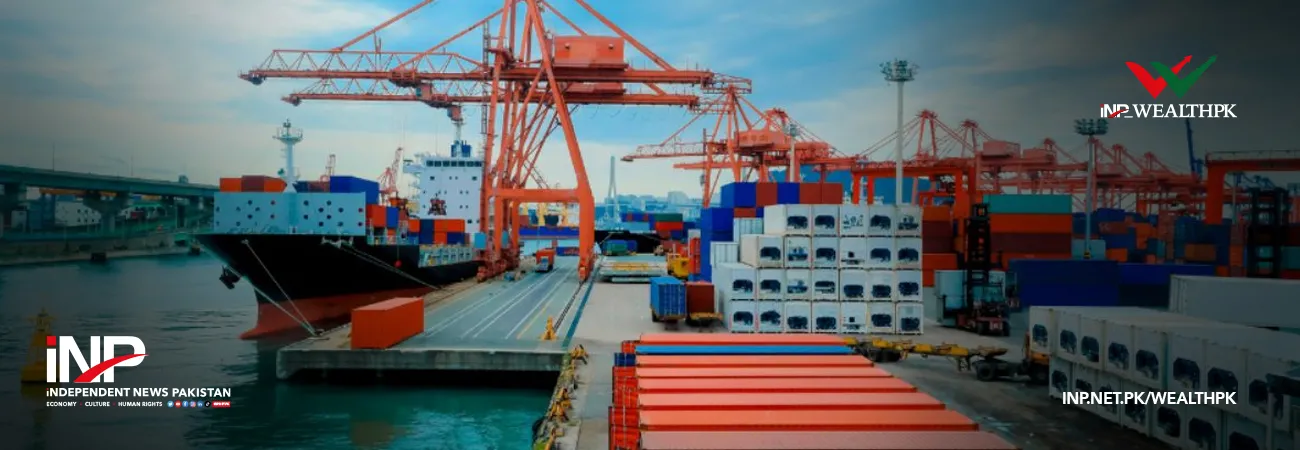INP-WealthPk
By Hifsa Raja ISLAMABAD, June 08 (INP-WealthPK): Chinese e-commerce tech giant Alibaba has teamed up with Enablers to help Pakistani youth increase their sales in order to support the country's e-commerce through online businesses. Alibaba and Enablers, each promoting e-commerce in their respective countries, have joined forces to achieve their common objective. Talking to WealthPK, Enablers WORC Coordinator Ehtesham Wajid said Alibaba was assisting Pakistan in sourcing merchandise for online enterprises owned by Pakistani youngsters. Before launching a firm, he advised, a businessman should first visit the market, preferably the wholesaler, to determine the prices of his items. If he finds that the wholesale price of a product is high, he can conduct his sourcing on Alibaba, whose primary focus is cost reduction and quality. “Selecting a supplier can be a complicated and difficult task for businesses, especially online businesses. As the success of a business depends on the quality of its products, Alibaba and Enablers are teaching young people about sourcing and how to select the most suitable supplier. Alibaba is used by 90 percent of private label businesses for sourcing,’’ he added. Ehtesham said Enablers was fostering e-commerce and online business skills among the youth. Alibaba, he said, shared the same goal, which is why they have joined forces with the Enablers to boost e-commerce by imparting digital skills to the young of Pakistan. “If you don't have enough money for a business, you can generate it online and then invest in it,’’ he suggested. Dr. Syed Hassan Raza, Assistant Professor at the School of Economic, Quaid-i-Azam University, Islamabad, told WealthPK that Enablers is an excellent platform for training young people for free. The second platform in Pakistan is Extreme Commerce managed by Sunny Ali. However, the training is expensive, whereas the alternative is free and consists of YouTube videos. These videos provide fundamental instructions for operating stores. Dr. Syed Hassan said there was no second thought about it that e-ecommerce and freelancing was rapidly expanding and becoming a very big sector in Pakistan’s economy. And it is increasing over a period of time because of the increasing youth bulge in a country where the median age is approximately 24, he added. “Our economy's production has a limited absorption capacity. This is both a blessing and disguise, as youth will eventually find their way through online enterprises and freelancing. They are generating income and bolstering the economy. The same trend is reflected in data, which indicates that the services sector is expanding and will continue to do so in the future. We have not worked on capacity building and we have shifted our focus to the services sector, which is currently sustainable until we develop some innovative items of our own and encourage entrepreneurship,’’ he stated. “On a global scale, we have Alibaba and Amazon, but locally we have Daraz. Youth from Pakistan operate their whole stores on Amazon while receiving their entire feed from Alibaba. Alibaba is used by sellers to pick their inventory. This field has potential for youth who accnout for 64% of the population in Pakistan. As revenue is generated, the government also supports the construction of incubators,” he added. Additionally, he discussed the future challenges of e-commerce that will impact Alibaba in Pakistan. He said there was no global payment gateway available for Pakistan comparable to PayPal, which was not yet available in Pakistan. “The transactions conducted without an established payment channel may result in additional FATF (Financial Action Task Force) sanctions. Therefore, this will render e-commerce extremely vulnerable. Our local platform Daraz will not be affected; however, Alibaba would be badly affected because of FATF sanctions. PayPal is not supported in Pakistan. Therefore, we must utilize a third-party app to transfer funds to Pakistan.’’ Dr. Syed Hassan Raza said the government should locate alternatives or legalisation mechanisms through a financial institution. “There is long-term security for those who work in the e-commerce and online industry. Therefore, they no longer have to withdraw every time they earn, due to channel uncertainty and sanctions. These are some concerns, yet it is a developing sector with considerable possibility for growth,” he said. E-commerce revenue has continued to climb. In 2021, the Pakistani e-commerce market increased by 45%, contributing to the global growth rate of 29%. The proportion of e-commerce in the British economy is greater than 80 percent.













